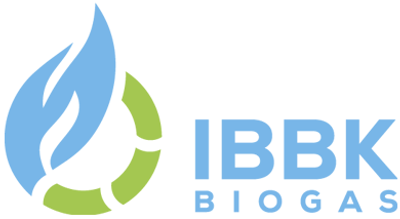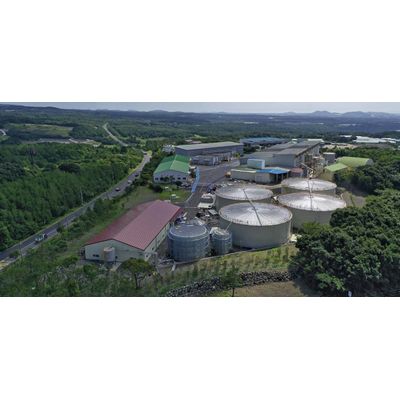

- Home
- Companies
- IBBK Fachgruppe Biogas GmbH
- Articles
- South Korea Mandarin orange juice ...

South Korea Mandarin orange juice production - residues used to produce biogas
Jeju is a subtropical, volcanic island located 100 kilometres south of the Korean peninsula. It is about half the size of Majorca and, due to its mild climate, it offers optimum conditions for cultivating citrus plants. Moreover, thanks to its lush and diversified natural setting and its ex- pansive beaches, it is a popular port of call on cruises through East Asia.
With a market share of 55 percent, China is by far the world’s largest producer of man- darin oranges. South Korea, where cultiva- tion is limited to Jeju, is in tenth place, with a production total of just about two percent. Due to the mild climate, more than 40 dif- ferent varieties thrive on this island. On Jeju, the mandarin orange harvest takes place from October through February. Be- cause of its high content of vitamins A and C, calcium and potassium, this well-known winter fruit is also a very healthy food. But primarily due to strict regulations, which stipulate that mandarin orange juice must consist of 100 percent fruit, the oranges are seldom processed into juice.
The only production site for mandarin or- ange juice in Korea is located on Jeju. Its production capacity has increased steadily in recent years. The pressing residues ac- cumulated from juice production are processed further in a dewatering system. The press cakes produced in this way are used in cattle feed and the thin, liquid phase is used to feed the biogas plant.
Because the requirements for the quality of fresh water and processing water are high in the beverage industry, the increase in juice production pushed the cleaning performance of the aerobically operated wastewater treatment plant to its limits. Consequently, treating the water such that its quality is sufficient for discharge into receiving waters has become more com- plex and expensive in recent years. The reason was that at 165 grammes per litre, the biochemical oxygen demand (BOD), which represents the amount of oxygen re- quired by bacteria for the biological decom- position of the organic compounds in the wastewater, was significantly higher than the permissible limit value. On the island of Jeju, the state’s environmental require- ments are high. Compliance necessitated that solutions be found.
Plant construction and operating experience
Mandarin orange juice is not produced all year long; instead, it is a seasonal business that starts at the beginning of the harvest and lasts somewhat longer than half a year. For this reason, to ensure uniform operat- ing performance for the biogas plant to be constructed, four vertical containers with a total storage capacity of 20,000 cubic metres were required to store the mandarin orange residue. To achieve maximum leak tightness, these containers, as well as all of the others supplied by the Lipp compa- ny, were manufactured with the patented double-seam system using a stainless steel composite material.
The other containers include a universal di- gester (850 cubic metre) for the anaerobic treatment of the highly polluted wastewater before further aerobic treatment in the mu- nicipal wastewater treatment plant as well as a mixing tank and a buffer tank. Each of these tanks has a volume of 100 cubic me- tres.
The biogas produced in the digester is used for heat generation for the waste- water treatment plant and the production site. The entire plant was commissioned in 2019. Since then it has been operating successfully and achieves very good BOD values of less than 3 grammes per litre for the wastewater.
